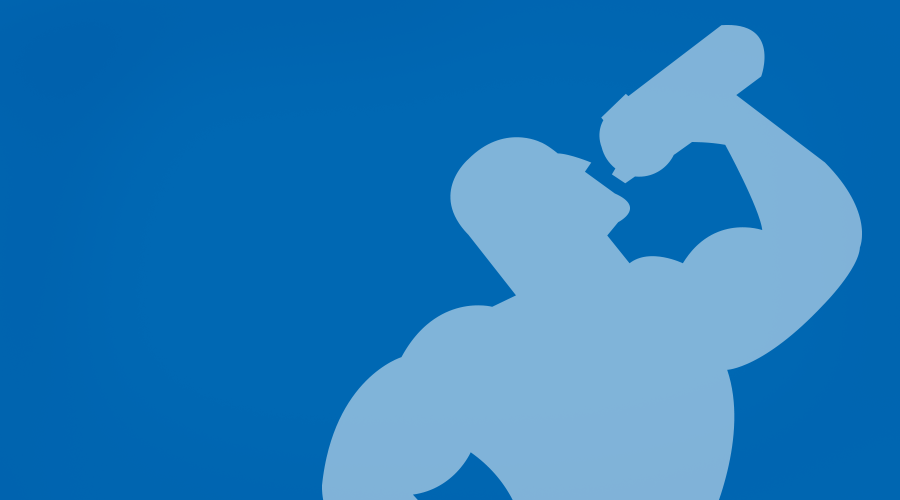Niche products and services are more important than ever in pharmacies today. But it can be hard to know what’s right for your independent community pharmacy.
“One of the biggest things with independent pharmacy is trying to find your niche—what sets you apart from the others,” said Tyler Ruby, Pharm.D., staff pharmacist at Everett Pharmacy in Everett, Pa. “As a smaller independent pharmacy, you have to think outside the box.”
An open mind and personal interest led Ruby, along with Everett Pharmacy owners Karen Iseminger, R.Ph., and Dan Iseminger, R.Ph., to consider how sports nutrition could work in—and for—their business.
They recently added a sports nutrition section to the front end that includes protein powder, mass gainers, electrolyte drinks, amino acids, carbohydrate gels and protein bars.
“The owners and I are all very athletic,” Ruby said. “I’m always buying supplements, and we saw these products as a great way to bring our own interest into the pharmacy, while drawing in a new, younger set of patients at the same time.”
“If we can get some younger people in here to look at these products, then as they start aging, or even just get a cold, they’ll think of coming to us to get their prescriptions filled,” Ruby said.
Spread the word
One of the most important areas to consider when establishing a sports nutrition section in your pharmacy is marketing. “You need to get the word out there and grab people’s attention,” Ruby said.
Ruby recommends passing out flyers at local gyms and advertising at local athletic events, like 5K races.
“An independent pharmacy isn’t where young people think to go get their sports nutrition products,” he said.
“So, you really need to push the marketing side and make sure all the athletic people know you have them.”
Know the products
Sports nutrition products have the potential to help your patients maximize their workouts, but only when used correctly. Many of your patients might not know how to properly use them.
“Have someone in your pharmacy who knows about the products, because patients are going to ask about them,” Ruby said.
Like with prescriptions, you’ll need to help your patients understand the proper dosage for these products, and when they should take them. Having a staff member, especially a pharmacist, who can explain this information, will give you an advantage over other stores that sell these products.
And, because the Food and Drug Administration (FDA) doesn’t hold supplements to the same standards as medications, some of these products might not make their benefits—or risks—completely clear.
Make sure you stock products from trusted manufacturers, and take the time to explain any potential risks to patients.
Advance health
For Everett Pharmacy, a sports nutrition section seemed like a logical fit. It allows the pharmacy to serve a patient base that might not need prescription medications, or that might not want anything else from its front end.
And in the end, it’s all about health.
“Here in the pharmacy, we’re trying to promote health,” Ruby said. “Sports nutrition is just another way to do that.”
By the Numbers
$2.6 billion – Sales of sports nutrition products in 2014
37 – Percent of adults who purchase sports nutrition products
18-44 – Core age group of adults who purchase sports nutrition products
50 – Percent that reflects how much more likely men are to be heavy buyers of sports nutrition products than women
2 – Hispanics are twice as likely to be heavy buyers of sports nutrition products than non-Hispanics
Source: Eighth Annual Vitamin and Sports Nutrition Study, TABS Group
A Guide to Sports Nutrition Products
There’s a good chance you’re already selling products in your front end that would tie in well with sports nutrition products, like multivitamins and mineral supplements. But for a true sports nutrition section, you’ll need much more. Here are some of the most popular types of sports nutrition products.
1. Carbohydrate drinks. Sports drinks, like Gatorade™, can help boost endurance and hydration over long periods of exercise.
2. Energy bars. These bars can help provide energy from carbohydrates before and during a workout. There are many different kinds, ranging from high-protein bars to bars specifically for women.
3. Protein powders. All varieties of protein powders are intended to help build muscle when taken in conjunction with a workout. Most people like to mix them into shakes or smoothies, and they’re popular even outside the sports nutrition segment.
4. Amino acids. This supplement helps with muscle repair, recovery and growth when taken in conjunction with a workout. Common amino acid supplements include glutamine, isoleucine, leucine and valine.
5. Creatine. This supplement provides energy to muscles, and can help with repeated short bouts of intense exercise, like weight lifting.












